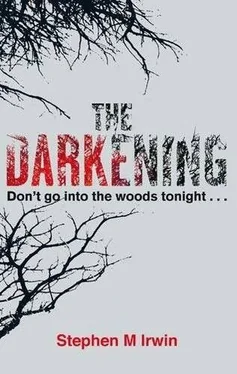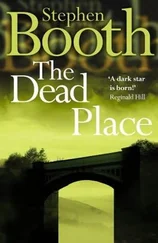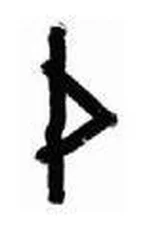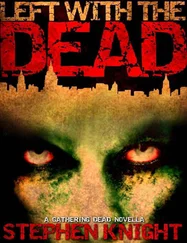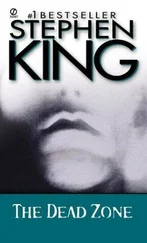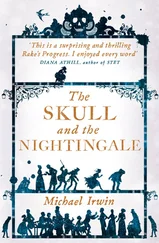Stephen Irwin - The Dead Path
Здесь есть возможность читать онлайн «Stephen Irwin - The Dead Path» весь текст электронной книги совершенно бесплатно (целиком полную версию без сокращений). В некоторых случаях можно слушать аудио, скачать через торрент в формате fb2 и присутствует краткое содержание. Жанр: Триллер, на английском языке. Описание произведения, (предисловие) а так же отзывы посетителей доступны на портале библиотеки ЛибКат.
- Название:The Dead Path
- Автор:
- Жанр:
- Год:неизвестен
- ISBN:нет данных
- Рейтинг книги:5 / 5. Голосов: 1
-
Избранное:Добавить в избранное
- Отзывы:
-
Ваша оценка:
- 100
- 1
- 2
- 3
- 4
- 5
The Dead Path: краткое содержание, описание и аннотация
Предлагаем к чтению аннотацию, описание, краткое содержание или предисловие (зависит от того, что написал сам автор книги «The Dead Path»). Если вы не нашли необходимую информацию о книге — напишите в комментариях, мы постараемся отыскать её.
The Dead Path — читать онлайн бесплатно полную книгу (весь текст) целиком
Ниже представлен текст книги, разбитый по страницам. Система сохранения места последней прочитанной страницы, позволяет с удобством читать онлайн бесплатно книгу «The Dead Path», без необходимости каждый раз заново искать на чём Вы остановились. Поставьте закладку, и сможете в любой момент перейти на страницу, на которой закончили чтение.
Интервал:
Закладка:
The chittering of leaves gave way to a rustling in the grass behind him.
His legs were burning with effort, lactate already racing like bushfire through his thighs. He took another step, another, another… and ran.
Just as he stepped onto the bitumen, he cast a look behind.
The grass was turning black as if flood waters had instantly risen to halfway up their stalks. Only the tide was not dark water: Nicholas knew it was a rising wave of black and gray spiders.
He turned and ran like hell.
T his was the last box. Pritam pulled it down from the rectory storeroom shelf, dropped it unceremoniously on the floor, and began emptying its contents.
Rifling through the other archive boxes had yielded a hodgepodge of curiosities: photographs of a twenty-years-younger Reverend John Hird smiling with disabled children under the World Expo monorail; a yellowing folder containing John’s army papers discharging him from Third Battalion of the Royal Australian Regiment; another envelope holding the location and number of his brother’s crematorium plot. Pritam set these aside.
Other finds were not personal and less interesting. Tax receipts for repairs, three notepads containing bookings for the church hall, an audit of plants in the church grounds, a receipt for a mimeograph machine.
Pritam had spent the day trawling through the boxes, occasionally answering a telephoning well-wisher or a knock at the door, confirming in a cracked and tired voice that, indeed, the Reverend John Hird had passed away last night; that, yes, he went peacefully; and agreeing that, indeed, he had been unwell a long while. Pritam did not say that John Hird, a man who had seemingly been afraid of nothing, had glimpsed something in an old photograph that had literally scared him to death.
And so to the last box.
If the previous cartons had been pedestrian in content, this was numbingly dull. Old bus timetables. Ticket stubs for bus travel. Suggestion-box notes held together with a rusted bulldog clip. A large envelope marked “Fund-raising.” Within this last were four smaller envelopes labeled by decade, the topmost reading “1970-80.” Pritam opened it.
Inside were a few copies of a flyer printed in purple ink-he was pleased the mimeograph got used. They advertised a fete: “Fun for the Family!,” “Sack races!” and “Home-baked cakes!” Handwritten lists of helpers and their duties (“R. Burgess, set up trestle tables amp; remove rubbish”). Faded Polaroid photographs of the big day: ladies shyly holding their iced cakes and smiling. Children with long hair and flared pants were lashed together at the ankles, running and laughing. A wide-tied man wagging his finger at the camera while eating a pie. A woman staring, unsmiling, at the camera.
Pritam’s breath stopped in his throat.
The woman staring at the camera was Eleanor Bretherton.
He flipped the photograph. In pencil, written in a fine copperplate hand: “Mrs L. Quill. Contributed $60 to fete fund 17 May
1975.”
Pritam sat back.
He felt small again, a thin-limbed boy in his grandmother’s cottage before his parents took him from India, listening after dinner as Nani told the story of a small village in Uttar Pradesh where every child was cut open, alive and screaming, to save the village from the wrath of Kali. That tale had terrified him as a child; not just his imagining being one of those utterly helpless children not even able to turn to their parents who themselves wielded knives, but imagining how terrible must be the face of Kali to drive loving parents to commit bloody murder.
Eleanor Bretherton. Mrs. L. Quill.
Now things go bad, he thought.
At that moment, someone pounded on the rectory door.
T he girl sat in one of the old club chairs, staring into space with slack eyes. She blinked occasionally and breathed slow and deep, but hadn’t shifted or spoken a word in the twenty minutes since she’d arrived at the presbytery.
“ ‘Hannah Gerlic, grade five,’ ” read Pritam. His voice shook. He replaced the exercise book into the girl’s school bag.
He looked up to the other club chair opposite. In it sat Nicholas Close, who nodded acknowledgment. In the middle of the cleared chessboard lay the dead plover talisman. One of its claw horns had been lost, but even to look at it made Pritam’s skin prickle.
This is not hypothetical evil, he thought. Not the evil of lust, nor the evil of hate. This is fundamental evil, as old as the world itself. This is the devil’s handiwork.
The thought was electric and terrifying, as if the veneer covering the world had peeled at one corner, affording a glimpse of dark and yawning depths below.
“I’m sorry,” whispered Nicholas.
He sat slumped in his chair, staring at the dead bird. For an unsettling moment, Pritam thought he was talking to the tiny corpse. Then he slid his eyes to Pritam and smiled.
He’s peered into the depths, too, thought Pritam. And he looks ready to fall into them.
He shook his head. After finding that photograph of Quill, he’d been shocked to open the presbytery door to stare right into the face of the man who’d brought her to his attention. Pritam had been ready to dismiss him, tell him John Hird was dead and to come back another time-better yet, don’t come back at all!-when he saw the girl standing dumbly behind Nicholas, holding his hand and staring into space. Nicholas said a word that was the second blow to finish the one-two: “Quill.”
Pritam had let them in, put the girl in the chair, listened as Nicholas briefly told him that he found her outside the woods and finished by pulling that horrible, disfigured bird from his pocket.
Now Pritam knew the girl’s name.
“Her parents. They’ll want to know why you grabbed their daughter while she was walking home.”
“I didn’t do this to her.”
“ I believe you,” said Pritam. The words surprised him. But they were true; he did believe. Every poisonous bit. That abomination of a bird verified it all: so unnaturally dead, so alien. It looked like a lightning rod for evil.
“I believe you, but I don’t think her mother will,” he continued. “I don’t think the police will. Not so soon after the Thomas boy. Nicholas, I think you’re looking down the barrel of some serious questions.”
Nicholas didn’t seem to care. He was watching Hannah Gerlic, and the concern in his eyes for her was real.
She stared into space, her expression blank as glass. Pritam had seen black-and-white footage of World War I soldiers in hospital wards, automatons staring at infinity. Shell shock.
“I suppose I am,” agreed Nicholas quietly. He looked at Pritam. “They won’t believe the truth.”
The men regarded one another.
“I won’t lie for you,” said Pritam.
Nicholas frowned. “Who asked you to?”
There was a rustling from Hannah’s chair and they looked at her. She was staring, wide-eyed, at the dead bird. Suddenly, she sucked in a surprised breath, gagged, coughed up some briny yellow spittle, and started crying.
A ndrew and Louise Gerlic were the happiest parents in the world.
Mrs. Gerlic hugged Hannah tightly, tears running quicksilver paths down her red cheeks. “Silly girl. Silly girl. Silly girl…” She rocked her daughter in her arms. Mr. Gerlic had his arms around them both, his eyes shut, nodding to himself.
On the drive to the Gerlics’ house, Pritam and Nicholas had worked out a story set in the awkward middle ground between lies and truth. Nicholas had been reading the development sign when Hannah appeared. She was distraught and wouldn’t respond to his queries. Uncomfortable with the idea of going through a young girl’s bag unaccompanied, he drove her immediately to his friend, the local reverend, where they discovered together the girl’s identity. Why was she so traumatized? They didn’t know. Had Nicholas seen anything unusual? No.
Читать дальшеИнтервал:
Закладка:
Похожие книги на «The Dead Path»
Представляем Вашему вниманию похожие книги на «The Dead Path» списком для выбора. Мы отобрали схожую по названию и смыслу литературу в надежде предоставить читателям больше вариантов отыскать новые, интересные, ещё непрочитанные произведения.
Обсуждение, отзывы о книге «The Dead Path» и просто собственные мнения читателей. Оставьте ваши комментарии, напишите, что Вы думаете о произведении, его смысле или главных героях. Укажите что конкретно понравилось, а что нет, и почему Вы так считаете.
